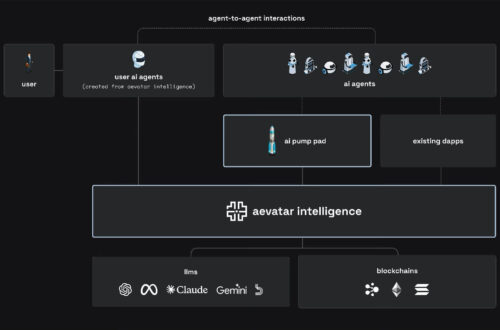
Simulation theory is a fascinating concept that posits the idea that our reality and everything within it might be nothing more than an elaborate computer simulation. This thought-provoking hypothesis challenges our understanding of existence, blurring the lines between what is real and what might be an illusion.
In this article, we will delve into the intriguing realm of simulation theory, exploring its origins, key principles, philosophical implications and the ongoing debate surrounding this mind-bending idea.
Overview of simulation theory
The idea of simulation theory has been more well-known recently, igniting debates in philosophy, science and popular culture. At its foundation, simulation theory puts forth the hypothesis that the world we see and experience is nothing more than a sophisticated computer simulation, similar to a cutting-edge virtual reality application.
According to this hypothesis, the cosmos we live in and everything in it — including ourselves — are elaborate simulations made by a civilization that is much more technologically evolved than our own.
Related: Augmented reality vs. virtual reality: Key differences
The philosophical foundations of “The Matrix”
The notion of existing in a virtual reality is not wholly new and has a long philosophical history. The nature of reality and the potential that our sensations might be illusions have long been explored by ideas like the “brain in a vat” and René Descartes’ “evil demon” argument.
With the release of the film The Matrix in 1999, which depicted a society in which humans lived in a virtual environment produced by machines to keep them in check and their bodies were exploited as a source of energy, this idea became increasingly popular.
Simulation theory is a “creation” story for materisalistic atheists https://t.co/vnMn0NMuRh
— Conscious Philosopher ☦️ (@consciousphilos) July 17, 2023
The simulation hypothesis
With his article “Are You Living in a Computer Simulation?” published in the early 2000s, Swedish philosopher Nick Bostrom popularized simulation theory. He presented a thought-provoking argument, suggesting that at least one of the following propositions must be true:
- Human civilization is unlikely to reach a post-human stage capable of running simulations.
- If post-human civilizations exist, they are uninterested in running simulations.
- We are almost certainly living in a computer simulation.
Technological advancements
The quick development of technology is one of the main tenets of simulation theory. It is becoming more conceivable to imagine a time in the future when simulations may mimic intricate and incredibly realistic worlds as our processing power continues to grow tremendously.
Some proponents contend that the sophisticated simulations that post-human civilizations might produce are little more than rudimentary forerunners to our own virtual reality experiences.
Arguments for and against
Simulation theory has both fervent fans and fierce detractors. Advocates frequently draw attention to the simulations’ increasing realism, the apparent gaps in fundamental physics and the potential drivers of future civilizations to develop simulations.
On the other hand, skeptics raise various counterarguments, including the lack of evidence, the difficulty of simulating consciousness and the philosophical implications if our reality were indeed simulated.
Related: What is extended reality (XR), explained
Unanswerable questions
One of the intriguing aspects of simulation heory is the array of profound questions it raises. If we are living in a simulation, what does it say about our existence and purpose? Does free will still exist in a predetermined simulation?
Are the creators of the simulation akin to gods? As of now, these questions remain largely speculative and philosophical in nature, as there is no concrete evidence to confirm or refute the theory.
If we are a Simulation, being alone in the universe is the most likely scenario.
And the odds we are a Simulation is maybe a billion-to-one or better.
But that suggests at least one “creator” level of reality if not billions. https://t.co/6ixdETSAZY
— Scott Adams (@ScottAdamsSays) July 23, 2023
Implications and ethical considerations
Even if simulation theory is ultimately disproved, it sparks crucial conversations about the nature of reality, the boundaries of one’s understanding and a human being’s place in the cosmos.
It raises ethical concerns about the obligations of possible simulation producers toward their simulated beings and challenges conventional religious and philosophical views to consider the idea of living in a simulation.

